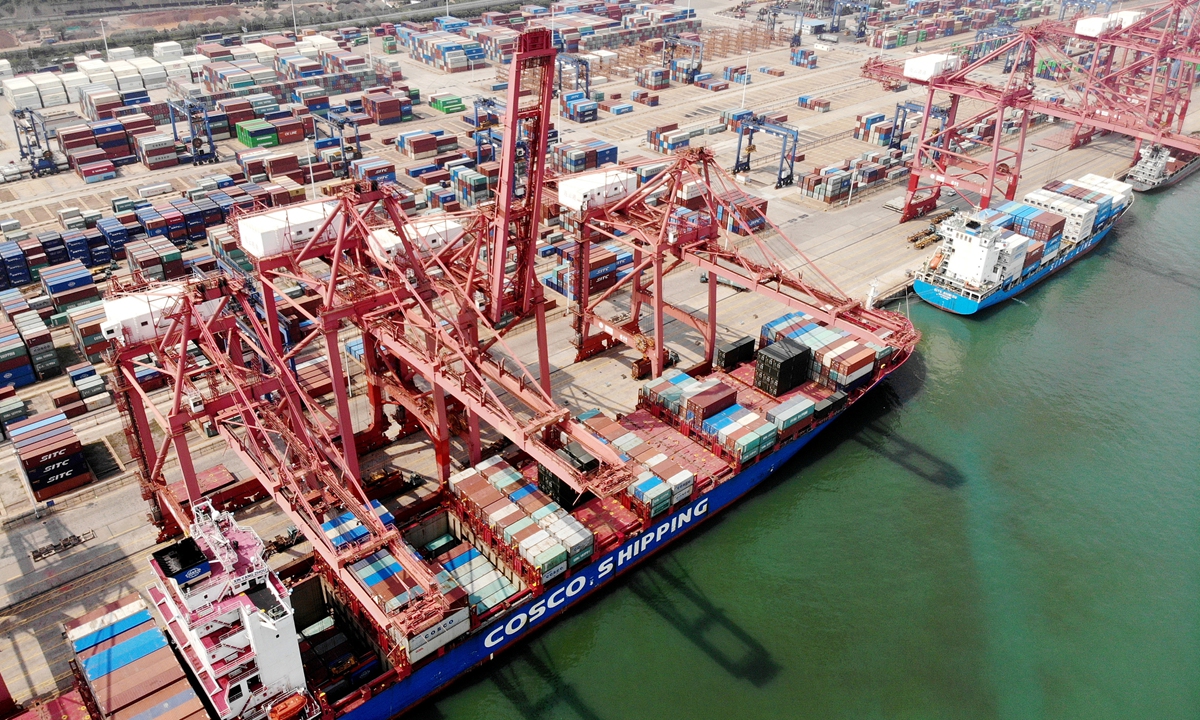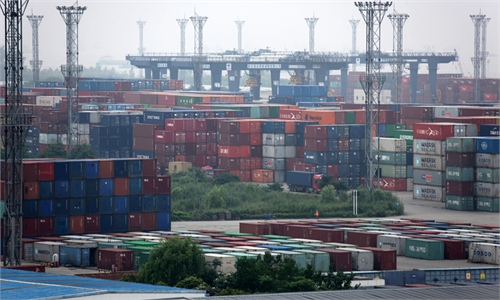
imports and exports Photo:VCG
China has extended tariff exclusions for some US imports, which are subject to Beijing's counter measures against US Section 301 action, by an additional year from Wednesday, the original date, until September 16, 2021.
According to a Tuesday statement from the Customs Tariff Commission of the State Council, China's cabinet, 16 products from the US including lubricants and fish meal for feed are included in the exemption.
Imports from the US had faced additional tariffs in retaliation for the US' Section 301 investigation covering Chinese imports.
"China's move is a reciprocal gesture toward the US," said Gao Lingyun, an expert at the Chinese Academy of Social Sciences in Beijing, who closely follows China-US trade friction.
In August, the US government extended China tariff exclusions for a wide range of goods, including smart watches and certain medical masks, through the end of 2020, rather than a one-year extension mainly due to the upcoming US presidential election. The next US administration will take office in January.
"The exemption extension by China will benefit Chinese importers, US exporters and downstream manufacturers," Gao said.
"Numerous studies have found that US companies primarily paid for US tariffs, with the cost estimated at nearly $46 billion," according to an August blog posting on the website of the Brookings Institution.
Since September 2019, China has issued several exemptions for US goods subject to retaliatory tariffs. For example, in May this year, China announced that a list of imported products from the US would be excluded from punitive tariffs, which came just days after the US released a tariff exemption list for products from China.
The coordinated moves aimed at easing pressure on specific industries and companies in both countries showed that regardless of the souring China-US ties in a wide range of areas, both sides are committed to the hard-won phase-one trade agreement, especially thanks to the efforts of China, experts said.
In the latest sales activity, Chinese firms bought 664,000 tons of US soybeans, the US Department of Agriculture (USDA) said last week. That was the largest daily purchase since July 22, Reuters reported.
Additionally, China made a purchase of 101,600 tons of US corn, the USDA said.
Under the phase-one trade deal, China agreed to expand purchases of certain US goods and services by a combined $200 billion over 2020 and 2021 from 2017 levels.
"It is hard to imagine what China-US trade would be like without the deal," said Gao.
Liu Ying, research fellow at the Chongyang Institute for Financial Studies at Renmin University of China in Beijing, told the Global Times on Tuesday that the phase-one trade deal is as an important stabilizer for bilateral trade relations.
"Although the COVID-10 pandemic still ravages the US economy, the country is restarting business, which has triggered rising demand for imports," said Liu.
Meanwhile, the US' unilateralism and protectionism have continued during the COVID-19 pandemic, which is not favorable for the global trade environment, said Liu.




